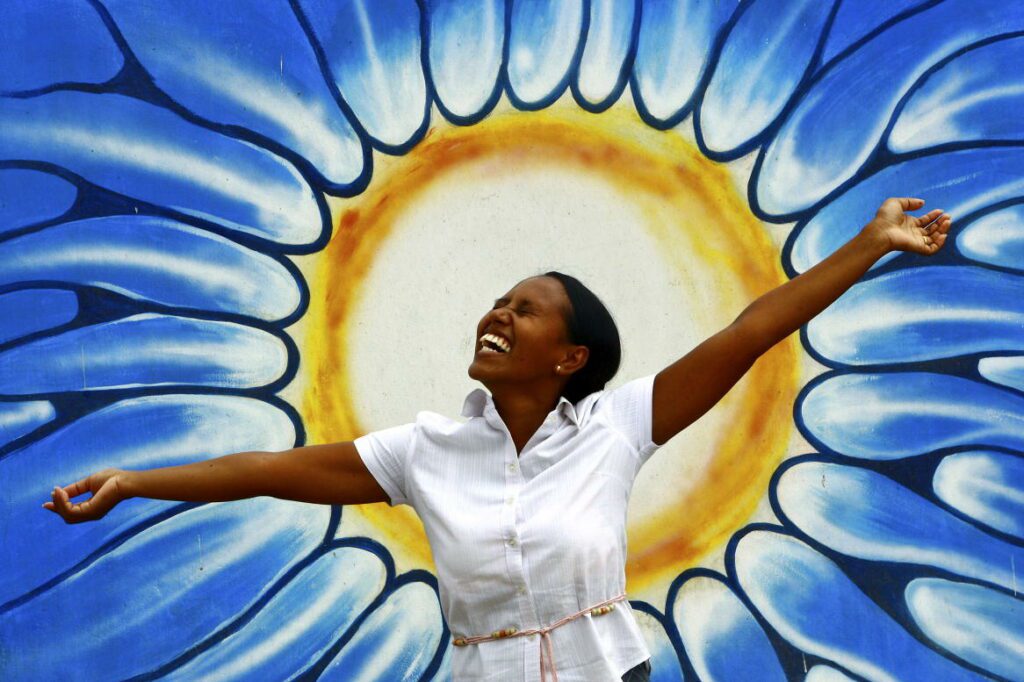
Injury, disability, and chronic illness impact the lives of millions every year. So too does depression, anxiety, post-traumatic stress disorder (PTSD), and suicide.
For some, undergoing rehabilitation can be extremely difficult. It can be life changing. It can also be an isolating, traumatizing, sad and stressful time for many.
This year World Mental Health Day encourages us to push forward the global agenda of increasing access to mental health care, with the theme “Mental health care for all: let’s make it a reality.” As part of this effort, ReLAB-HS wants to highlight the important part proper mental health care can play for those in rehabilitation.
Mental-ill health is often associated with functional difficulties and disabilities. Person-centred rehabilitation should always be informed by individual experiences of mental health. Rehabilitation and assistive technology practitioners can play a vital role in understanding when people might benefit from referral to specialised services and providing safe, trauma-informed rehabilitation care.
To highlight some of the challenges experienced by people who might need rehabilitation and assistive technology, in this blog, we focus on the need for mental health services after injury.
Many injuries are known to increase the risk for poor mental health. Some examples include:
Traumatic brain injury, which may be caused by falls, vehicle-related collisions, sports or combat injuries as well as other causes, are associated with greater risk for depression, anxiety disorder, PTSD, and panic disorder. A nationally representative study in the United States in 2018 found that people who experienced traumatic brain injury were at greater risk of suicide compared to the general population.
Spinal cord injury, also commonly caused by motor vehicle accidents, falls, and other injuries, can be a devastating experience. Rapid life changes may occur in both home and work life and impact on a person’s ability to participate in their community. Spinal cord injury has also been linked to increased risk of depression and anxiety.
These are just two of the ways that mental health and injury are inseparable and highlights the critical need to provide appropriate psychological care in rehabilitation settings.
By providing mental health services during rehabilitation we can help service users:
Additionally, an important support in many people’s rehabilitation journey is the presence of an informal caregiver. This might be a spouse, a parent, a child, or a friend or other relative. Evidence has shown that the mental health of caregivers can also suffer during rehabilitation. Ensuring that caregivers are also given the mental health support that they need helps to create positive environments of healing and adjustment.
Mental health services are often inadequately resourced, but especially in low-and-middle income countries, where ReLAB-HS focuses its efforts. Services are also fragmented; even when services are adequate, a timely, affordable referral for mental health services is far from guaranteed.
That’s why ReLAB-HS is advocating for and supporting integration of rehabilitation into the health system, strengthening knowledge and skill among health practitioners, strengthening referral pathways, locally relevant technological solutions for tele-rehabilitation and coordination of care. Among our visions for a health system that responds to rapidly growing population needs for rehabilitation and AT is that the right mix of care – including mental health services for people during their rehabilitation – is available to all.
For more information about mental disorders visit Mental disorders (who.int)
For resources on mental well-being visit Mental well-being: resources for the public (who.int)
#WorldMentalHealthDay
Image credit: “World Mental Health Day Observance” by United Nations Photo is licensed under CC BY-NC-ND 2.0